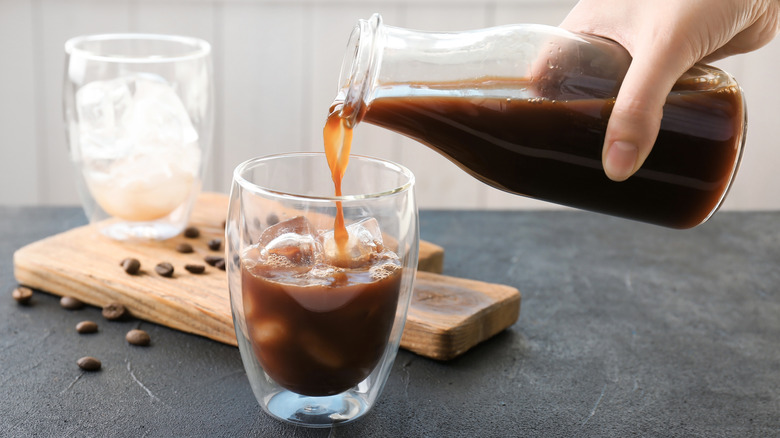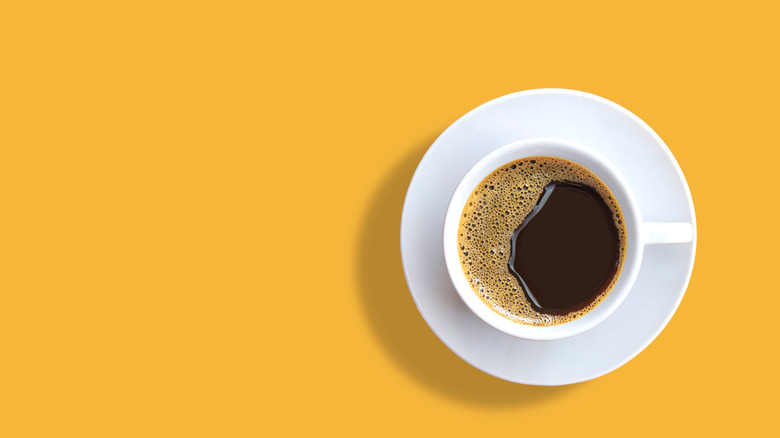Does Cold Brew Really Have More Caffeine Than Hot Coffee?
Coffee can give you the jolt that you need to wake up from a sluggish morning, provide a boost to power through an afternoon slump, or help you stay up late at night when you really just want your bed. This extraordinary quality is why many depend on several cups of the liquid to get through the day. Coffee gets its superpower from caffeine, a natural stimulant that helps you stay focused and prevents traces of fatigue (via Healthline). This is why it's important to know how much caffeine your cup of coffee has. Is it too much? Too little? Just enough?
It is often presumed that, if it's a caffeine jolt you want, cold brew must be the best coffee to do the job — and that may be the case because a considerably greater amount of coffee beans goes into the making of cold brew than hot coffee. According to Healthline, cold brew is made by steeping coffee grounds in water for between eight hours to one day. Unlike a hot coffee that requires only about one spoon of coffee grounds and hot water, cold brew requires cold or room temperature water and a higher ratio of coffee to water than its warm counterpart — up to two-and-a-half times more, in fact (via HuffPost).
However, just because more coffee is required to make a batch of cold brew than hot coffee, it does not necessarily mean that cold brew has more caffeine than hot coffee. On the contrary, hot coffee has slightly more of the stimulant than cold brew does.
Water temperature plays a huge role in hot coffee's caffeine content
When comparing the caffeine content of various drinks at Starbucks, Healthline found that a 16 oz (473ml) cup of cold brew has 205 mg of caffeine, whereas a 16 oz cup of hot coffee can have anywhere between 210 mg to 360 mg of caffeine, depending on exactly which hot coffee you're drinking.
Although cold brew technically has more coffee in it and undergoes a longer extraction time than hot coffee does, it does not necessarily have more caffeine. The main reason for this, Joseph Rivera of Coffee Chemistry says, is the temperature of the water. In an interview with The Kitchn, Rivera explains that, "Caffeine's solubility is primary driven by temperature, such that at higher temperatures, significantly more caffeine will dissolve in solution than at cooler temperatures." Simply put, the hotter the water poured over coffee, the higher the amount of caffeine it will have because hot water extracts more caffeine. This is why hot coffee usually has more caffeine than cold brew, since the latter is made using room temperature water at best.
Other than temperature, Rivera adds that the type and amount of coffee beans that you use, their grind size, and the amount of time you let the coffee steep in water also play a role in the caffeine content of a cold brew.

